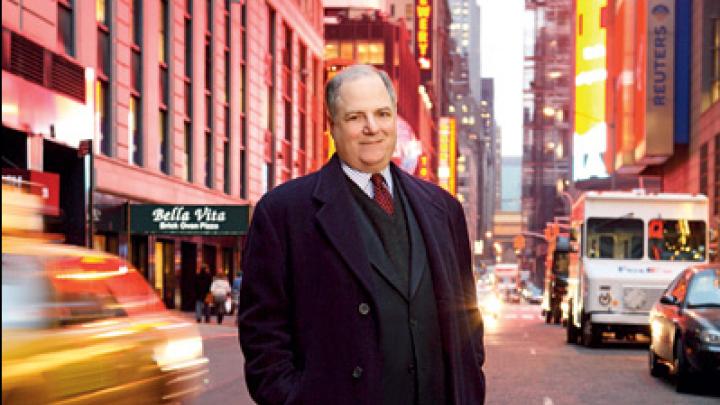The New York Times has announced that Frank Rich ’71, a weekly political/cultural columnist who has been with the newspaper for 30 years, will leave its pages for those of New York magazine. His last column will run on March 13. Rich, profiled in a cover article for Harvard Magazine, wrote theater criticism, magazine essays, and op-ed columns for the Times. He will write a monthly column for New York and contribute on a more frequent basis to its online vehicle, NYMag.com. Rich will give a speech on Monday, March 7, at the Harvard Kennedy School, when its Joan Shorenstein Center on the Press, Politics, and Public Policy honors him with its Goldsmith Career Award for outstanding contributions to the field of journalism.









